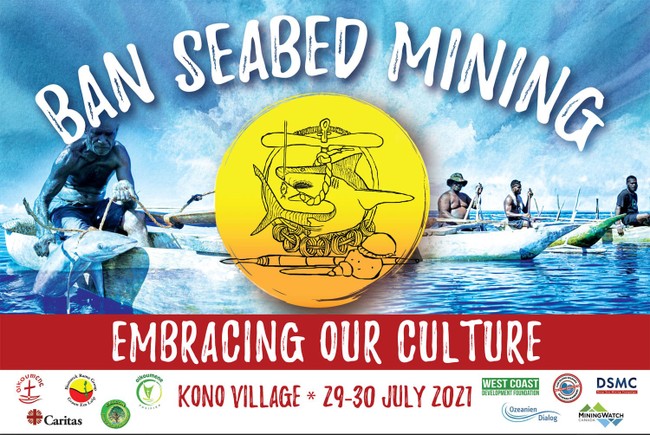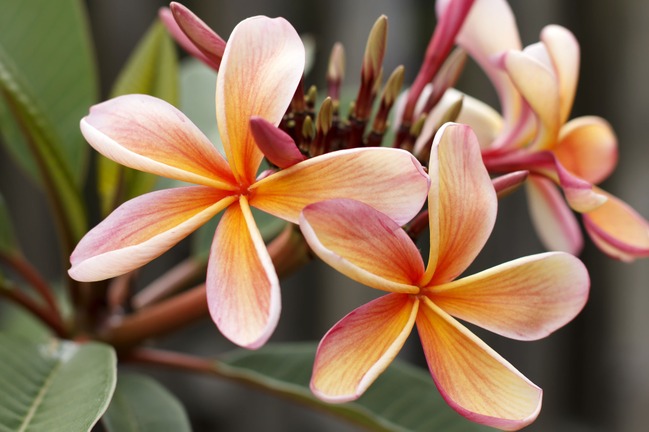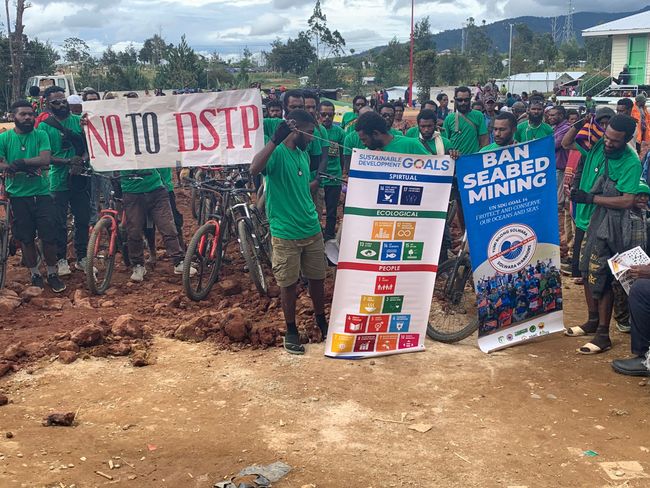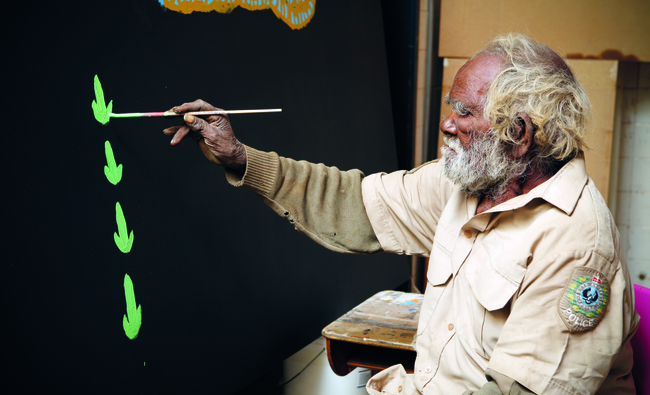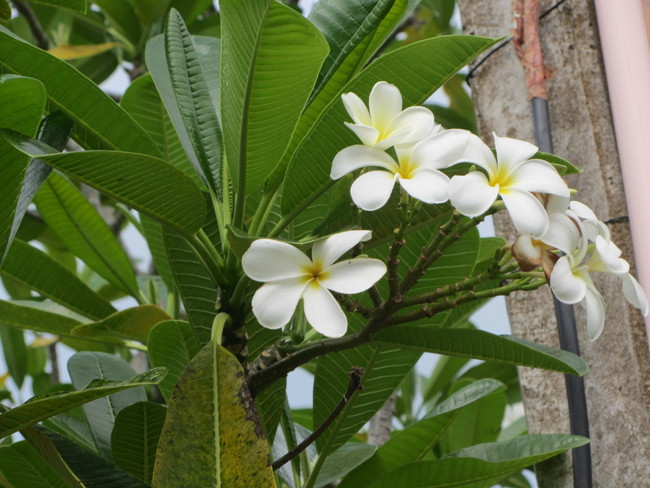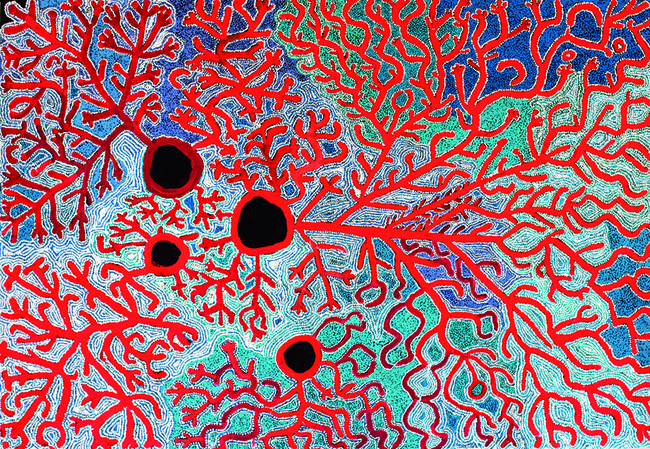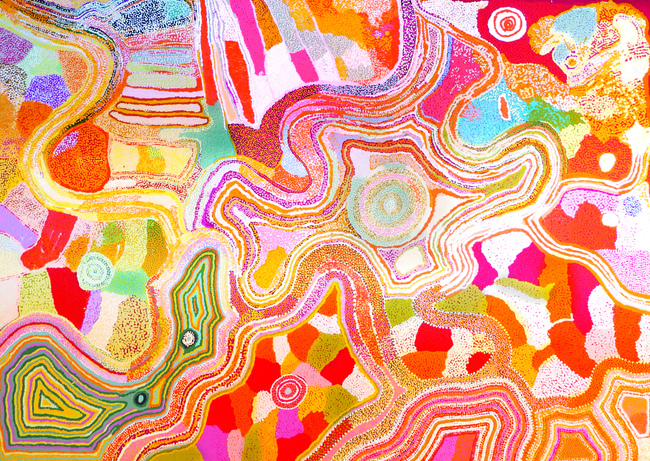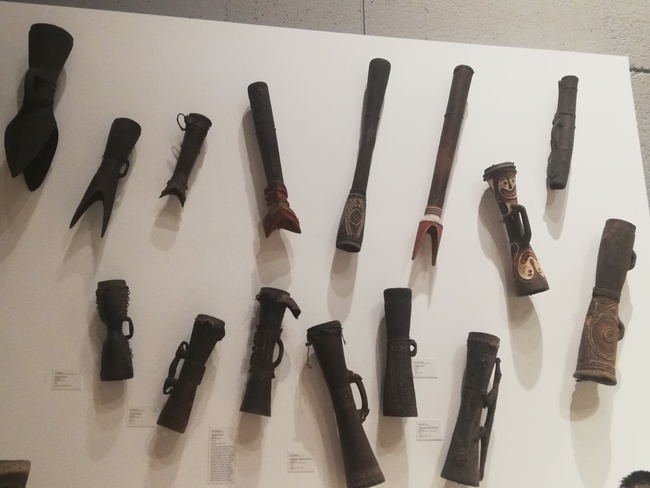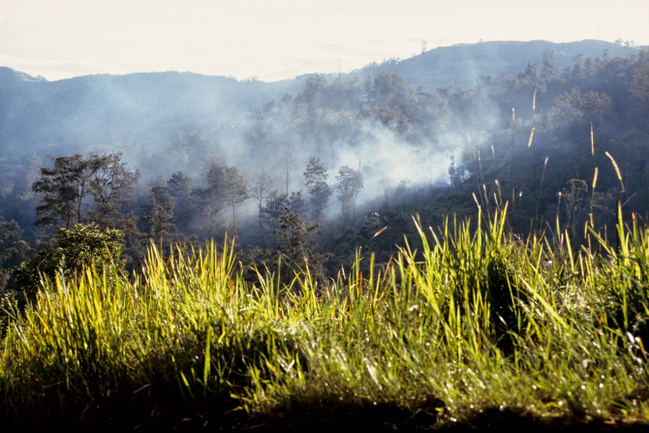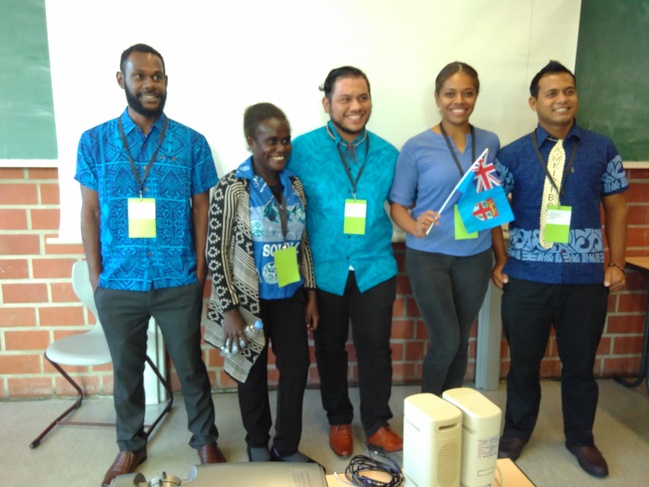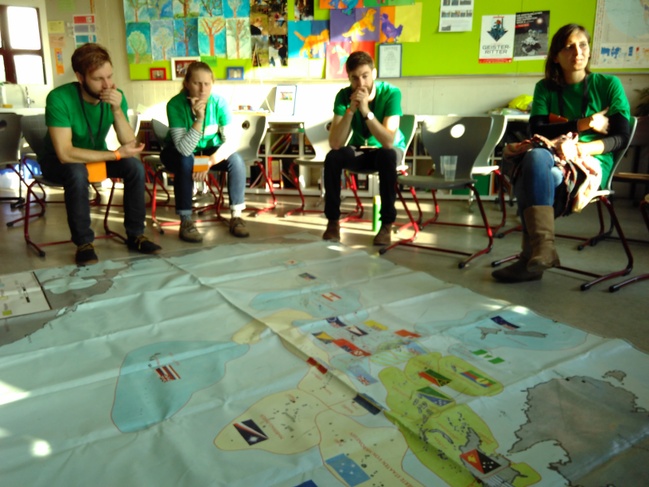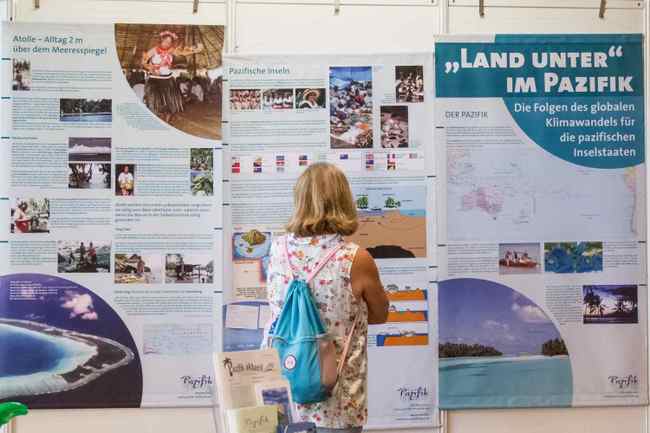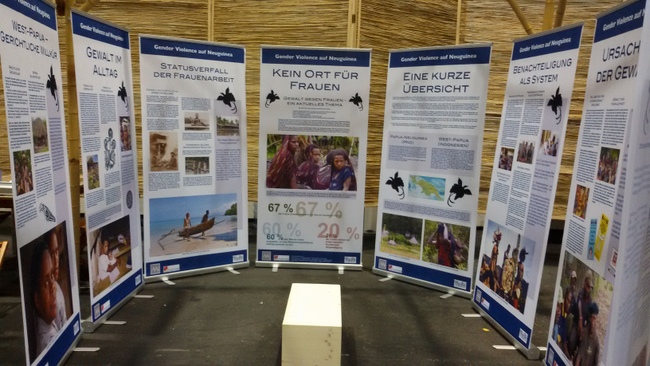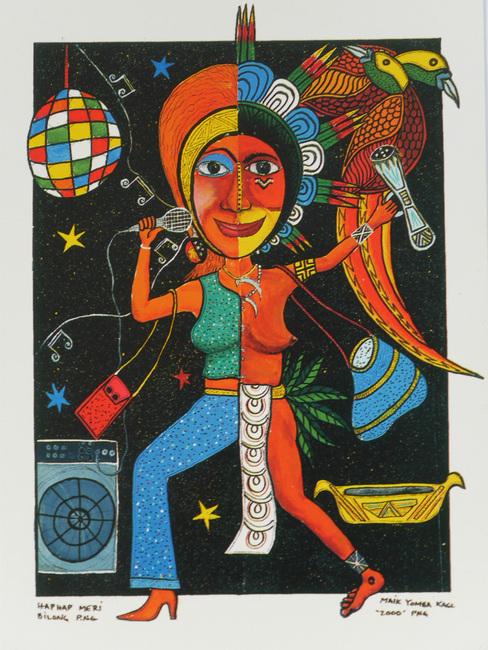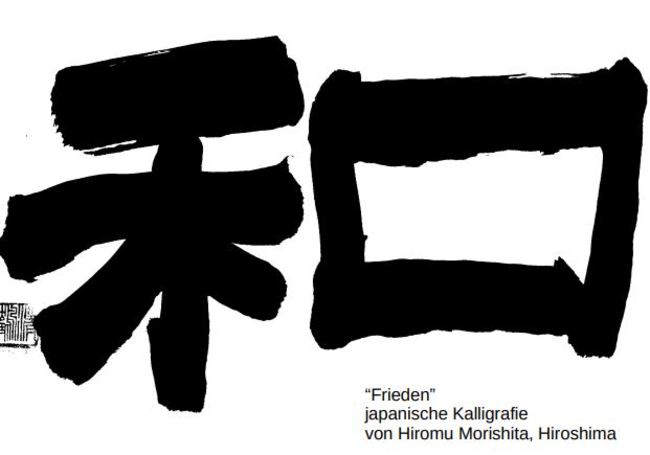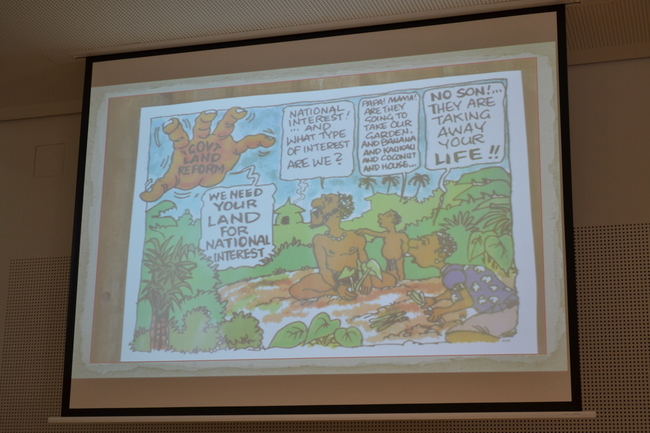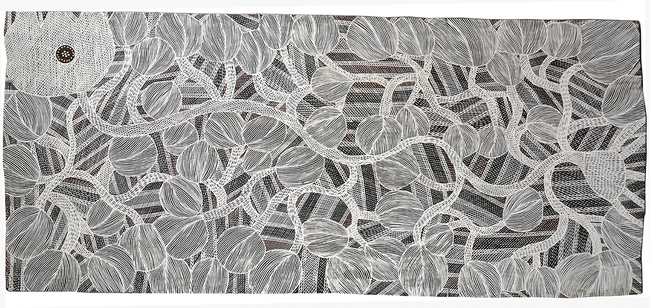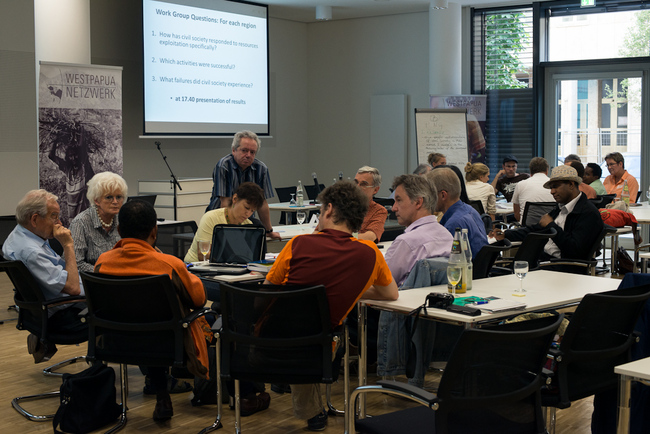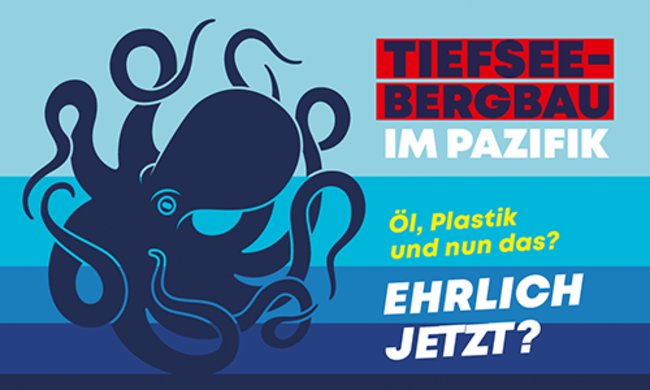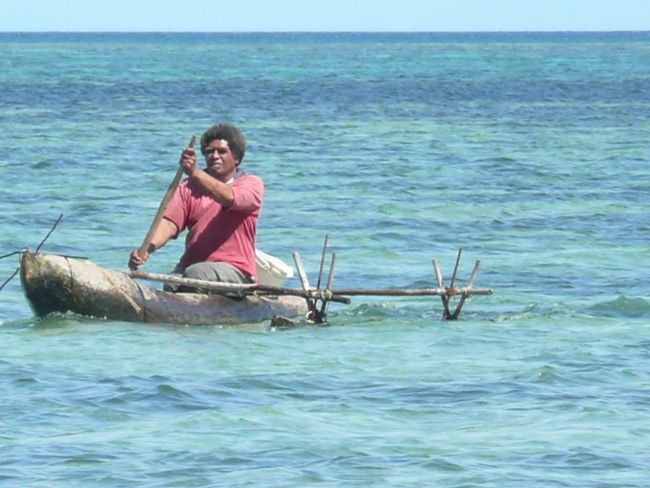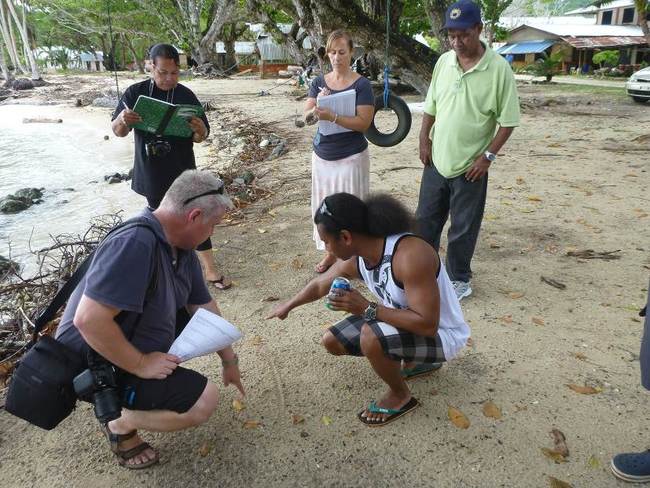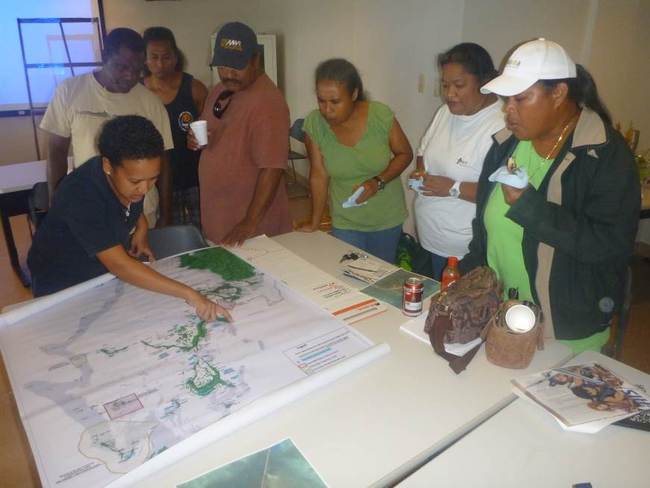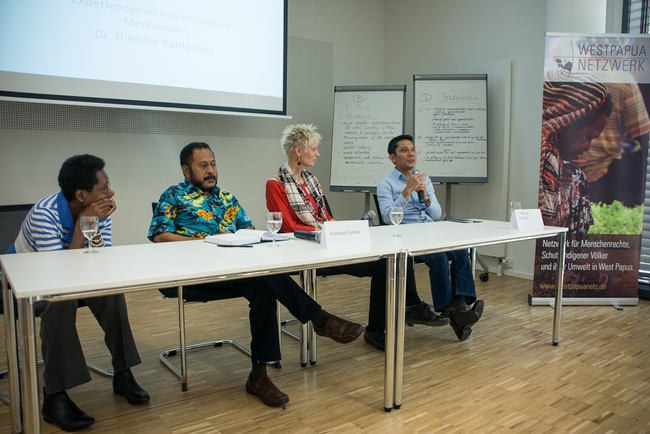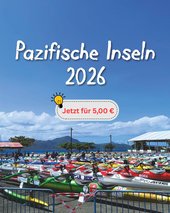Statement of the West Papua National Coalition for Liberation
01.07.2011: Presseerklärung von Jonah Wenda, Rex Rumakiek, John Ondawame und Andy Ayamiseba
West Papuan people in the country and abroad are commemorating first of July, a very historic day in the West Papuan struggle for self determination and independence. All the activities on the day will be peaceful. In different parts of the country the people will commemorate the day in many peaceful ways depending on the local conditions. These will include prayers, rallies, seminars, film shows, displays and marches. In Jayapura, the Capital of Papua Provinve, the commemoration will take place at the cemetery of the late Theys Elluay in Sentani. There will be prayers and speeches about the struggle and hopes for the future. There are concerns that the Indonesian Military and its Militias may provoke violence as they have always done in the past but this will not deter our activities. We therefore forewarn the Media to be on alert for such eventuality. The Papuan people are more determined than ever to claim their independence. What you will see on the 1st of July is part of the many more actions yet to come. WEST PAPUA, AN ISSUE WHO’S TIME HAS COME.
On 1st of July, 40 years ago under the leadership of the late Brig.Gen. Seth Rumkorem and Excellency Jacob Prai (exiled in Sweden) a proclamation of independence was declared complete with a Constitution, a Senate and Provisional government. The leadership of the Movement had come to that decision after careful consideration of the following historical facts:
(1). By 1960 West Papua was well and truly in the process of decolonization. A decolonization plan introduced by Dr. Joseph Luns, the Foreign Minister of the Netherlands won 51% votes in the United Nations.
(2). West Papuans had already established Political Parties and had general elections where an embryonic Parliament called the Nieuw Guinea Raad or the New Guinea Council was established. Members of the South Pacific Commission (This body had been expanded to become the Pacific Islands Forum), Australia, New Zealand, France, Great Britain and of course the host, the Netherlands attended the inauguration of this embryonic Parliament on 5 April 1961. USA declined the invitation but had voted earlier for the decolonization plan at the United Nations.
(3). The New Guinea Council produced a 10 years development and localization program that will end with full independence by 1970 (This plan was adopted from the political manifesto of the Papua National Party, the PARNA). The Netherlands fully agreed to implement the plan.
(4). Spurred by the euphoria of independence, the Council proceeded to create the national symbols for the future Republic of West Papua, they are, the Morning Star flag, the National Anthem, ‘my land Papua,’ Court of Arms and proposed that from that day on the Territory should be called Papua (West Papua). These symbols were accepted by the Colonial government and on the 1st of December 1961 the Morning Star flag was officially raised alongside the three colors flag of the Netherlands including the singing of the national anthems of both countries accompanied by Marine Corps band and parade by the military including Papuans’ own Volunteer Corps, the PVK and police forces with fly pass by the Royal Dutch Air Force. This decolonization process came to an abrupt stop because of the United States sponsored New York Agreement to end the escalation of conflict and possible open war between the Netherlands and Indonesia over West Papua. The elected West Papuan leaders were not involved or even consulted.
The Agreement granted Indonesia a TEMPORARY MANDATE to administer the Territory pending a REFERENDUM in 1969 where the Papuan people would be allowed to freely and democratically vote on their political status. Indonesia never respected the agreement. It annexed West Papua to become the 26the Province of the Republic the same way it had annexed East Timor. In 1969 Indonesia organized a fraudulent exercise where 1022 tribal leaders representing 800,000 Papuans were forced to accept integration. Regardless of the travesty conduct in the implementation and serious concern by some Africa countries the UN endorsed a resolution cosponsored by Indonesia and the Netherlands for the results to be accepted. The UN accepted the results with qualified note that the method used was according to Indonesian practice. Another way of saying, it was not according to the UN standard procedure in a referendum.
In view of this GROSS INJUSTICE the West Papuan independence movement, the OPM took the only option available to it at the time, a UNILATERAL PROCLAMATION OF INDEPENDENCE. For obvious reasons the Provisional government did not operate as it should have but the integrity it represents remain today in the hearts of every West Papuan. We will continue to strive for our independence.
Since Indonesian occupying forces arrived on our soil everything went from bad to worse. Democratic institutions including the elected Council and Political parties were dissolved; freedom and the right of assembly including the right of free opinion were prohibited. Any breach of this order will carry a serious sentence of up to 20 years in jail. The whole population is terrorized to submit to the will of the government. The localization and self government schemes during the Dutch administration were scrapped. In the past 10 years Indonesia attempted to corrupt the International opinion, with a similar scheme called Special Autonomy. This bogus special autonomy had died a natural death. It is open book that Indonesia gave more importance to Colonist settlement called Transmigration than basic social services to the people. Year by year human right reports are filling the files of responsible human right agencies including the UN Human Rights Council but nothing is done about them. Serious human right abuses at the level of crimes against humanity are still in the hands of UNHC and Indonesia’s own Human Rights Commission, KOMNAS HAM for the past 8 years. It is now almost half a century and there is no better way to describe Indonesia’s legacy of subjugation in West Papua than INDONESIAN COLONIAL TERRORISM.
For further information contact:
(1). Jonah Wenda. Spokesman of the Military Council of West Papua National Liberation Army (TPNPB) on Tel. +6281344117861
(2). Rex Rumakiek, Secretary General, West Papua National Coalition for Liberation (WPNCL) on Tel. +61414247468
(2). Dr. John Ondowame, Vice Chairman, West Papua National Coalition for Liberation (WPNCL) on Ph. +678450244452
(3). Mr. Andy Ayamiseba, Vanuatu Mission, West Papua National Coalition for Liberation (WPNCL) on Tel. +678 55400901
Info: We are releasing for your dissemination this joint statement by Jonah Wenda, the Spokesman of the Military Council of West Papua National Liberation Army and the Secretariat of WPNCL. This is in conjunction with the commemoration of 1st of July, the day when the Independence Movement, the OPM proclaimed West Papuan independence in 1971.
